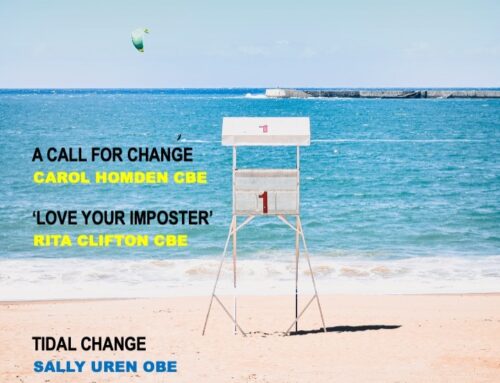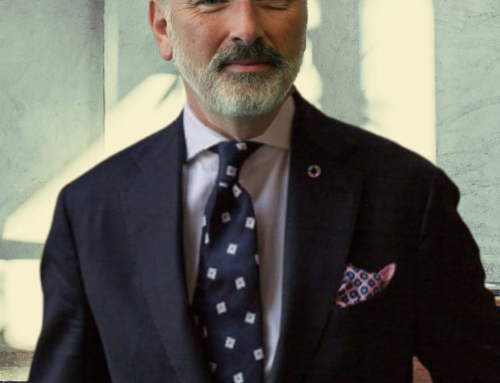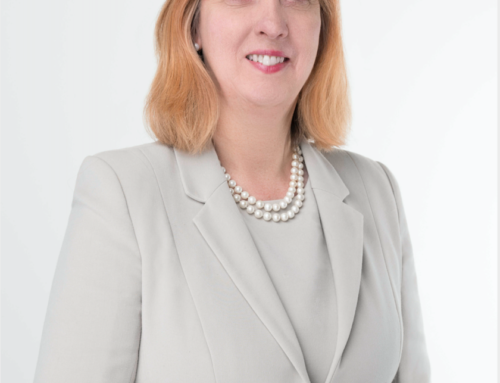Kindness – The key to Life
Mother Theresa’s home for the dying in Calcutta was the turning point in my life. Here, I witnessed a depth of kindness that affected me on many levels. I saw at first hand the love given by so many to the destitute who were at the point of crossing over. They were on their own. I remember one woman saying to me, “Dear Girl are you from the UK? I was at Oxford University and look where I have ended up, I have no one in my life and I am about to die on my own. Thank you for showing your love and kindness”.
It was here in Calcutta at the age of 18 that I received my calling: I was here to serve and help those less fortunate than myself. 34 years later I found myself working with some of the most marginalised people in the UK through the different charities and programmes I have set up.
The kindness and selflessness I experienced in Calcutta has helped me shape all the programmes I have created, from HRH The Prince of Wales’s ‘Seeing is Believing Programme’ and ‘Business Action on Homelessness’ to ‘The Warrior Programme’ working with former veterans, and now Key4Life where we are concentrating on rehabilitating young offenders.
In my experience of working with so many marginalised individuals over the years, it never fails to shock and sadden me how many people are deeply prejudiced and judgemental. Life for many is a huge struggle and they have no option but to follow a life of crime. The approach I always take is to display kindness and loving support to those who need it. What so many people are looking for is a hand up not a hand out, I show them that I do care, and that if I say I will help I will follow through.
Our work with offenders at Key4Life, following the seven-step model that I created from my 34 years of experience has been revolutionary, and bringing horses into prisons is one example of this. The horse is clearly the most effective tool we have when rehabilitating young offenders. Horses have no agenda, they see the problem and when a young man drops his guard and shows his kindness to the horse, the horse will reciprocate in the most wonderful way possible.
 This use of equine therapy with prisoners is followed up with an effective variety of activities including taking mentors into the prison. Our voluntary mentors come from all walks of life. For some, the first time in a prison is a daunting prospect and they are full of trepidation. Yet, within minutes of meeting the inmates they have thrown all their prejudices out of the window and are fully engaged. The mentors display kindness on an extraordinary level; the sheer commitment, dedication, unconditional love and support they provide to the young men is remarkable and never fails to amaze me.
This use of equine therapy with prisoners is followed up with an effective variety of activities including taking mentors into the prison. Our voluntary mentors come from all walks of life. For some, the first time in a prison is a daunting prospect and they are full of trepidation. Yet, within minutes of meeting the inmates they have thrown all their prejudices out of the window and are fully engaged. The mentors display kindness on an extraordinary level; the sheer commitment, dedication, unconditional love and support they provide to the young men is remarkable and never fails to amaze me.
The corporate sector also has a powerful role to play. Business leaders have the capacity to both unlock the potential of young offenders and at the same time provide employment which is the key to breaking the offending cycle. But do companies really care? We know that over 50% of companies in the UK will not employ an offender and that 48% of companies do not believe offenders have the right skills for employment. Yet curiously, we also know that companies are increasingly being asked to report on their diversity and inclusivity. Is this a box ticking exercise or are they genuinely wanting to make a difference?
Certainly there are companies that are incredibly socially responsible and show kindness in the most inspiring and encouraging way by going that extra mile and giving that much needed hand up to those who need it most. Companies like these are making remarkable strides to take action and lead by example but there are other companies that are simply driven by the bottom line.
Given offending is costing the economy £18 Billion per annum, as taxpayers we all have a vested interest in tackling this intractable problem with some form of love and kindness! Let us not forget what the Dalai Lama said “My religion is very simple. My religion is kindness.”
I personally believe that living in a happy, sustainable, peaceful world is only possible when we, as citizens, all collectively approach it with an attitude of love, kindness and compassion.
Eva Hamilton MBE
Founding CEO
Key4Life: Rehabilitating young offenders and those at risk of offending.
www.key4life.org.uk
Twitter: @Key4LifeUK
Instagram: @Key4LifeUK

![IMG_3340 – Version 2[2305843009223305462]](https://onehundredemea.wpengine.com/wp-content/uploads/2019/08/IMG_3340-Version-22305843009223305462-254x300.jpg)
Kindness – The key to Life
Mother Theresa’s home for the dying in Calcutta was the turning point in my life. Here, I witnessed a depth of kindness that affected me on many levels. I saw at first hand the love given by so many to the destitute who were at the point of crossing over. They were on their own. I remember one woman saying to me, “Dear Girl are you from the UK? I was at Oxford University and look where I have ended up, I have no one in my life and I am about to die on my own. Thank you for showing your love and kindness”.
It was here in Calcutta at the age of 18 that I received my calling: I was here to serve and help those less fortunate than myself. 34 years later I found myself working with some of the most marginalised people in the UK through the different charities and programmes I have set up.
The kindness and selflessness I experienced in Calcutta has helped me shape all the programmes I have created, from HRH The Prince of Wales’s ‘Seeing is Believing Programme’ and ‘Business Action on Homelessness’ to ‘The Warrior Programme’ working with former veterans, and now Key4Life where we are concentrating on rehabilitating young offenders.
In my experience of working with so many marginalised individuals over the years, it never fails to shock and sadden me how many people are deeply prejudiced and judgemental. Life for many is a huge struggle and they have no option but to follow a life of crime. The approach I always take is to display kindness and loving support to those who need it. What so many people are looking for is a hand up not a hand out, I show them that I do care, and that if I say I will help I will follow through.
Our work with offenders at Key4Life, following the seven-step model that I created from my 34 years of experience has been revolutionary, and bringing horses into prisons is one example of this. The horse is clearly the most effective tool we have when rehabilitating young offenders. Horses have no agenda, they see the problem and when a young man drops his guard and shows his kindness to the horse, the horse will reciprocate in the most wonderful way possible.
 This use of equine therapy with prisoners is followed up with an effective variety of activities including taking mentors into the prison. Our voluntary mentors come from all walks of life. For some, the first time in a prison is a daunting prospect and they are full of trepidation. Yet, within minutes of meeting the inmates they have thrown all their prejudices out of the window and are fully engaged. The mentors display kindness on an extraordinary level; the sheer commitment, dedication, unconditional love and support they provide to the young men is remarkable and never fails to amaze me.
This use of equine therapy with prisoners is followed up with an effective variety of activities including taking mentors into the prison. Our voluntary mentors come from all walks of life. For some, the first time in a prison is a daunting prospect and they are full of trepidation. Yet, within minutes of meeting the inmates they have thrown all their prejudices out of the window and are fully engaged. The mentors display kindness on an extraordinary level; the sheer commitment, dedication, unconditional love and support they provide to the young men is remarkable and never fails to amaze me.
The corporate sector also has a powerful role to play. Business leaders have the capacity to both unlock the potential of young offenders and at the same time provide employment which is the key to breaking the offending cycle. But do companies really care? We know that over 50% of companies in the UK will not employ an offender and that 48% of companies do not believe offenders have the right skills for employment. Yet curiously, we also know that companies are increasingly being asked to report on their diversity and inclusivity. Is this a box ticking exercise or are they genuinely wanting to make a difference?
Certainly there are companies that are incredibly socially responsible and show kindness in the most inspiring and encouraging way by going that extra mile and giving that much needed hand up to those who need it most. Companies like these are making remarkable strides to take action and lead by example but there are other companies that are simply driven by the bottom line.
Given offending is costing the economy £18 Billion per annum, as taxpayers we all have a vested interest in tackling this intractable problem with some form of love and kindness! Let us not forget what the Dalai Lama said “My religion is very simple. My religion is kindness.”
I personally believe that living in a happy, sustainable, peaceful world is only possible when we, as citizens, all collectively approach it with an attitude of love, kindness and compassion.
Eva Hamilton MBE
Founding CEO
Key4Life: Rehabilitating young offenders and those at risk of offending.
www.key4life.org.uk
Twitter: @Key4LifeUK
Instagram: @Key4LifeUK

![IMG_3340 – Version 2[2305843009223305462]](https://onehundredemea.wpengine.com/wp-content/uploads/2019/08/IMG_3340-Version-22305843009223305462-254x300.jpg)



